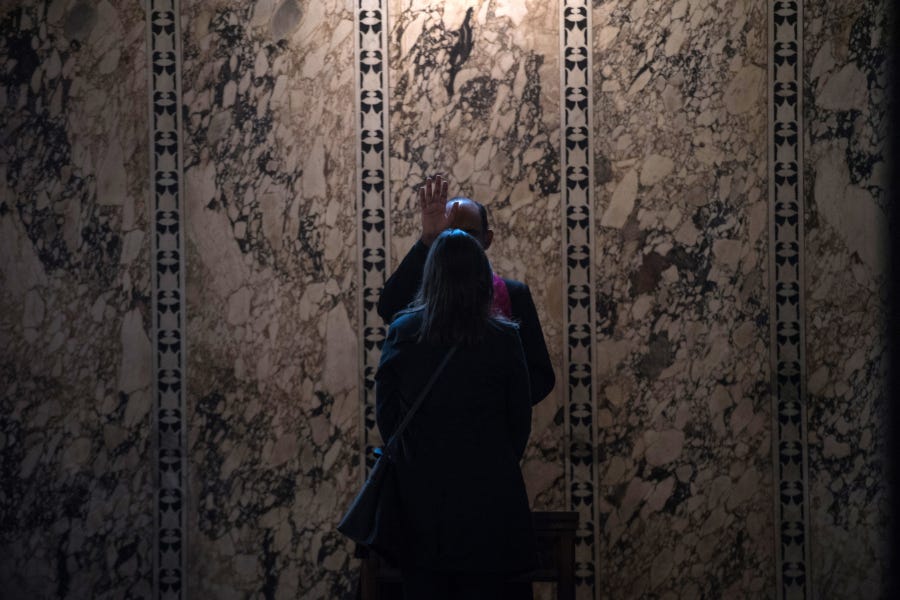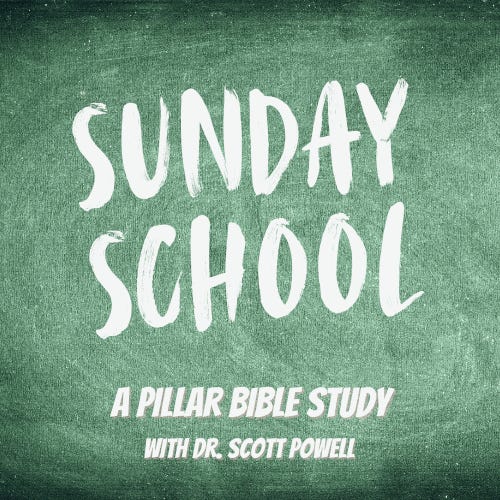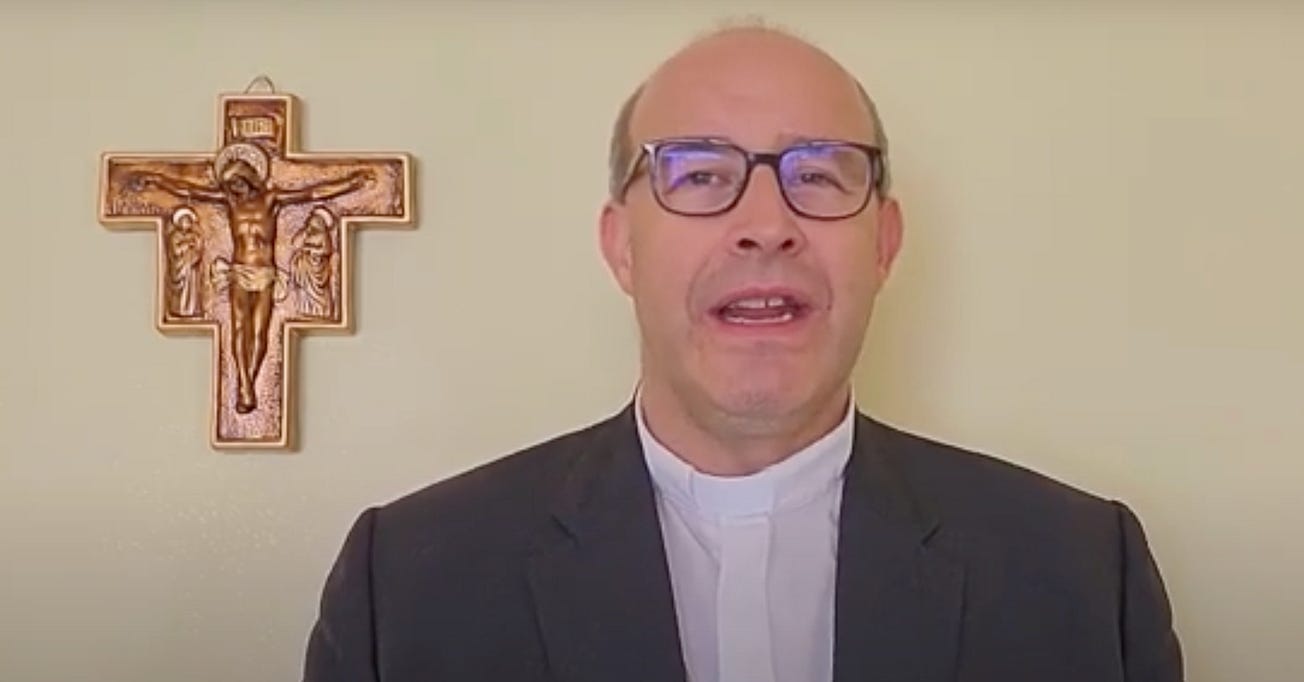Documents for the Church’s forthcoming synod on synodality were issued by the Vatican Tuesday morning by the permanent secretariat for the synod of bishops.
The secretariat issued its preparatory document and handbook September 7 to assist local dioceses and Churches ahead of the first phase of the multi-year synodal process for the global Church.

The synodal process, instituted by Pope Francis, aims to reorder the Church’s internal mechanisms for discussion and reflection, and to help shape a new way for the Church to understand and articulate both her internal self-understanding and mission of evangelization.
“This journey, which follows in the wake of the Church’s ‘renewal’ proposed by the Second Vatican Council, is both a gift and a task: by journeying together and reflecting together on the journey that has been made, the Church will be able to learn through Her experience which processes can help Her to live communion, to achieve participation, to open Herself to mission,” the preparatory document says.
The preparatory document poses a “fundamental question” to be addressed by the synodal process, which is to take place across the Church at the local, diocesan, regional, and universal levels.
“A synodal Church, in announcing the Gospel, ‘journeys together’: How is this ‘journeying together’ happening today in your particular Church? What steps does the Spirit invite us to take in order to grow in our ‘journeying together’?”
Several follow-ups follow that initial question, asking in more detail about the life and structure of local churches.
During a press conference Tuesday morning at the Vatican, officials and experts from the permanent secretariat of the synod of bishops stressed that the newly-issued synodal handbook was not a “rulebook” but contained “guidelines” and “suggestions” for local implementation. Each diocese and region of the world, they stressed, must find its own best means of “living” the synodal process.
The exact definition of synodality remains a contested issue in the Church in recent years, with Pope Francis needing to intervene in a so-called synodal process in Germany to correct a flawed understanding of the concept.
The panel presenting the documents on Tuesday morning included Cardinal Mario Grech, the secretary general of the permanent secretariat, as well as the secretariat’s under-secretaries and expert consultants in theology and canon law.
When the panel was asked by journalists to provide a “precise and concise definition” of synodality, Dr. Myriam Wijlens said it would be an “injustice” to the concept of synodality to define it ahead of the synodal process.
Wijlens, who teaches canon law at Erfurt University in Germany, compared synodality to “a flower,” which cannot be properly described before it has had a chance to bloom.
Synods have been an ordinary part of the life of the Church since the early centuries, with local Churches and dioceses convoking synods to discuss theological and pastoral issues relevant to the times. After Vatican Council II, Pope Paul VI created the permanent secretariat of the synod of bishops in Rome in order to bring bishops from around the world together to help inform the pope’s thinking on different issues.
The secretariat organizes a schedule of ordinary and extraordinary sessions of bishops from around the world who meet to discuss either specific topics chosen by the pope, or the regional concerns of the Church in different parts of the world.
The synod on synodality aims, according to the documents, to ensure more “diversity” within the internal life of the Church and to ensure that the views of the “marginalized” are properly represented within the synodal dialogue, the purpose of which is to allow the Church to better listen to and articulate the sensus fidelium, or the consensus of the faithful, which the Church teaches is an authentic guarantor of the faith expressed by the Church.
The synodal documents recognize various groups at risk of being marginalized, including the women, refugees, migrants, the poor, the elderly, people with disabilities, and encourages local Church leaders to ensure their full and active participation in the synodal process, together with “Catholics who rarely or never practice their faith.”
“Together, all the baptised are the subject of the sensus fidelium, the living voice of the People of God,” says the synodal vademecum. “At the same time, in order to participate fully in the act of discerning, it is important for the baptised to hear the voices of other people in their local context, including people who have left the practice of the faith, people of other faith traditions, people of no religious belief, etc.”
“While all the baptized are specifically called to take part in the Synodal Process, no one – no matter their religious affiliation – should be excluded from sharing their perspective and experiences, insofar as they want to help the Church on her synodal journey of seeking what is good and true. This is especially true of those who are most vulnerable or marginalized.”
The synodal document’s insistence on the participation of both Catholics who have left the practice of the faith and of non-Catholics, is likely to fuel concerns that the process could foment dissent against established Church teaching across a range of issues.
During the press conference Tuesday morning, journalists repeatedly raised the ongoing “synodal way” being pursued by the Church in Germany, which has stated the aim of calling for a federalization of doctrinal authority in the Church and the revision of established teaching on a number of subjects, including human sexuality and the sacramental ordination of women.
Synodal officials emphasized that the pope is the ultimate point of unity and authority in the synodal process, and the diocesan bishops are called to fill the same role at the local level — synodality does not mean either a “parliamentary” process or the introduction of majority-view decision making within the Church.
Instead, they said, moving the Church to a more permanent mindset of synodality would allow the faithful to better exercise “the prophetic function of all the people of God” articulated by the Second Vatican Council.
The first phase of the synodal process begins officially on October 9 in Rome, when the permanent secretariat will host a Mass and accompanying launch event. The process will close with the sixteenth ordinary session of the synod of bishops in Rome, set to meet in October 2023, which will produce a final synodal document for consideration by the pope.
Individual dioceses are invited to create the role of a synodal “contact person” to coordinate the local process, although the synod guidelines express a preference that two “contact persons” coordinate a team of “co-leaders” of the process to better reflect the “synodal nature of the process.”



